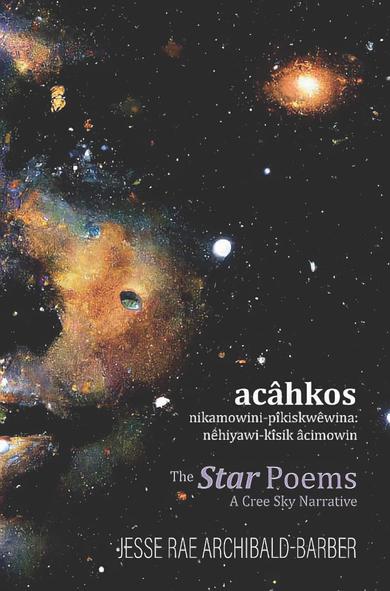2 neat things from the presentations I gave at the local science centre yesterday:
First, there was a Cree poet there who gave me a copy of his book https://www.yourwestcentral.com/articles/book-the-star-poems-a-cree-sky-narrative which is AMAZING. I didn't get a chance to look carefully at it until afterwards, so I didn't realize how incredibly special it was that he gave me a copy!
In the book, there's an appendix where the author discusses Cree translations for physics terms like gravity, boson, quantum foam, and time. I LOVE IT.
